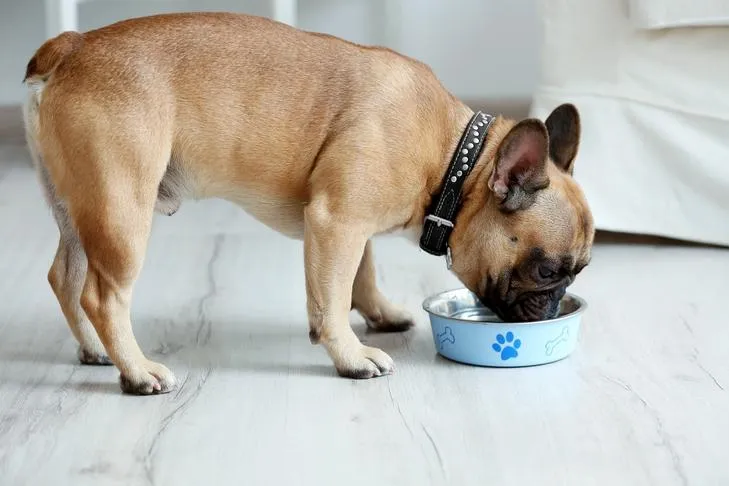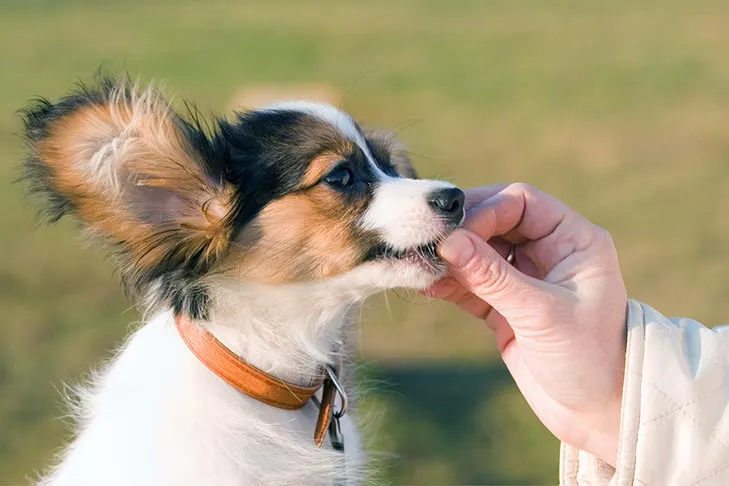As loving pet parents, we often wonder if our furry friends can share a bite of our meals. While many human foods are off-limits or even toxic for dogs, there’s a surprisingly long list of common foods that, when prepared correctly and offered in moderation, can be perfectly safe and even beneficial for your canine companion. Understanding which foods fall into the “yes” category and how to serve them is crucial for maintaining your dog’s health and happiness, preventing accidental poisonings, and enriching their diet. It’s important to remember that a dog’s primary diet should always come from high-quality, balanced dog food, with human foods serving only as occasional treats or supplements. This guide will explore various common human foods that dogs are allowed to eat, providing insights into their benefits and any necessary precautions.
Knowing what human food do dogs eat safely can greatly enhance your pet’s mealtime experience and potentially offer additional nutrients. However, always introduce new foods slowly and in small quantities to monitor for any adverse reactions, especially if your dog has a sensitive stomach or known allergies. Consulting with your veterinarian before making significant changes to your dog’s diet is always recommended to ensure these additions align with their specific health needs and dietary requirements. This detailed overview will help you navigate the world of shared snacks, making informed choices for your beloved canine.
Safe Human Foods for Your Canine Companion
Navigating the complexities of canine nutrition, especially when it involves sharing human food, requires careful consideration. Many ingredients we consume daily can be beneficial to dogs, providing essential vitamins, minerals, and other nutrients. However, the key lies in preparation, portion control, and understanding individual dog sensitivities. Let’s delve into some popular human foods that can be safely enjoyed by your dog, alongside important tips to ensure their well-being.
Bread
In small, plain amounts, bread is generally safe for dogs, provided it contains no harmful spices like garlic or onion, and absolutely no raisins, which are highly toxic. While it won’t offer significant health benefits due to its lack of nutritional value, a small piece can be a harmless treat. Be mindful that bread is high in carbohydrates and calories, which can contribute to weight gain if given too frequently. Homemade breads are a better option than most store-bought varieties, as they typically avoid unnecessary preservatives and artificial additives often found in commercially produced loaves. However, the safest approach for dogs with specific dietary needs is to avoid it altogether.
Cashews
Cashews can be a delightful treat for dogs in moderation. These nuts are packed with beneficial nutrients such as calcium, magnesium, antioxidants, and protein, all of which contribute to your dog’s overall health. However, like many nuts, cashews do contain fats. While they have less fat than some other nuts, overfeeding can still lead to weight gain or digestive upset. It’s crucial to offer cashews only if they are unsalted and unflavored, as high sodium content is detrimental to canine health. A few unsalted cashews can make a tasty and nutritious reward, but always as an occasional treat, not a regular dietary staple.
Cheese
Most dogs adore cheese, and in small to moderate quantities, it can be a great treat. While rare, some dogs can be lactose intolerant, so introduce cheese cautiously. Opt for lower-fat varieties such as cottage cheese or mozzarella to avoid excessive fat intake, which can lead to pancreatitis or weight issues. Cheese provides a good source of protein and calcium. Many pet owners also find their dogs enjoy specialized dried cheese chews, like Himalayan dog chews, which are specifically formulated for canine consumption. Always ensure any cheese given is plain and free from additives like garlic or onion.
 An American Bulldog resting its head on a kitchen table, looking at a piece of cheese.
An American Bulldog resting its head on a kitchen table, looking at a piece of cheese.
Coconut
This versatile fruit offers several health benefits for dogs. Coconut contains lauric acid, known for its antiviral and antibacterial properties, which can help support your dog’s immune system. It can also aid in improving bad breath and alleviating certain skin conditions, including hot spots, flea allergies, and general itchy skin due to its anti-inflammatory effects. Both coconut milk and coconut oil are safe for dogs. When offering fresh coconut, ensure that the hard, fibrous outer shell is completely removed to prevent it from becoming a choking hazard or causing an intestinal obstruction. Always choose unsweetened and plain coconut products.
Corn
Corn is a common and safe ingredient found in many commercial dog foods, serving as a good source of carbohydrates, fiber, and essential nutrients. If you’re sharing corn, it is imperative to ensure it is completely removed from the cob. The cob itself is indigestible and can pose a significant choking hazard or lead to a dangerous intestinal blockage, requiring emergency veterinary intervention. While plain, cooked corn kernels are fine in moderation, a safer and more playful alternative might be a squeaky corn toy designed for dogs. Always serve cooked, plain corn without butter, salt, or other seasonings.
Eggs
Cooked eggs are an excellent source of protein and essential amino acids for dogs, making them a nutritious addition to their diet. They can also be particularly helpful for settling an upset stomach. However, it’s crucial that eggs are always fully cooked, as raw egg whites contain avidin, an enzyme that can interfere with biotin absorption, potentially leading to a biotin deficiency over time. Scrambled, boiled, or poached eggs, served plain without any butter, oil, salt, or seasonings, are the safest way to offer this protein-rich treat.
Fish
Fish offers a wealth of benefits for dogs, being rich in healthy fats and amino acids that support overall health, including skin, coat, and joint health. Salmon and sardines are particularly beneficial choices. Salmon is loaded with omega-3 fatty acids, vitamins, and protein, promoting brain and immune system health. Sardines, with their soft, digestible bones, provide an excellent source of calcium. However, with the exception of small sardines, it is absolutely essential to meticulously remove all tiny bones from any fish you feed your dog, as they can splinter and cause internal injury. Never feed your dog uncooked or undercooked fish, as it can contain harmful parasites that may cause severe illness, including vomiting, diarrhea, dehydration, and in extreme cases, be fatal. Limit fish intake to no more than twice a week and ensure it is fully cooked and cooled.
Ham
While a small piece of ham might seem like a tempting treat, it’s not the healthiest option for your dog. Ham is notoriously high in both sodium and fat, which can contribute to various health issues such as excessive thirst, bloat, pancreatitis, and other digestive problems. While an occasional, very small, unseasoned piece might be acceptable, it should not be a regular habit. Always ensure any ham given is plain, cooked, and trimmed of excess fat. Leaner protein sources are always a better choice for your dog’s regular diet.
 A French Bulldog happily eating food from a bowl placed on the floor in a home setting.
A French Bulldog happily eating food from a bowl placed on the floor in a home setting.
Honey
Honey is a natural powerhouse of nutrients, including vitamins A, potassium, calcium, magnesium, copper, and a wealth of antioxidants. Offering small amounts of local honey to dogs can potentially help with seasonal allergies by gradually introducing small amounts of pollen, thereby building up immunity to local allergens. Beyond consumption, honey’s natural antibacterial properties also make it a safe and effective topical treatment for minor burns and superficial cuts on your dog’s skin. However, due to its high sugar content, honey should be given sparingly and not to diabetic or overweight dogs.
Milk
While dogs can technically have milk, caution is advised. Many dogs, especially as they age, are lactose intolerant and lack the enzyme needed to properly digest milk sugars. This can lead to digestive upset, including diarrhea and gas. While a small amount might not cause issues, owners should be vigilant for symptoms of lactose intolerance. Often, sticking to water as their primary hydration source is the safest bet. If offering milk, ensure it’s plain, unflavored, and given in very small quantities.
Peanut Butter
Peanut butter can be an excellent and highly palatable source of protein for dogs. It also provides heart-healthy fats, along with vitamins B and E, and niacin, all of which contribute to a healthy coat and energy levels. The healthiest choice is raw, unsalted peanut butter. It is absolutely critical to read the label carefully and avoid any peanut butter that contains xylitol, a common artificial sweetener. Xylitol is highly toxic to dogs and can cause a rapid drop in blood sugar, liver failure, and even death. Always double-check ingredients before sharing this popular treat.
Peanuts
Unlike almonds, which are difficult for dogs to digest and can cause stomach upset, plain, unsalted peanuts are generally safe for dogs. They are packed with beneficial fats and proteins that can contribute to your dog’s nutritional intake. However, due to their fat content, peanuts should be given in moderation to prevent excessive fat intake, which can lead to pancreatitis or weight gain. Always avoid salted or flavored peanuts, as high sodium levels are detrimental to canine health and can lead to salt poisoning.
Popcorn
Unsalted, unbuttered, and air-popped popcorn can be an acceptable treat for your dog in moderation. It contains riboflavin and thiamine, which are important for eye health and proper digestion, as well as small amounts of iron and protein. It is crucial to ensure all kernels are fully popped before offering them to your dog, as unpopped kernels can pose a serious choking hazard or cause dental damage. Avoid microwave popcorn, as it often contains butter, salt, and artificial flavors that are unhealthy for dogs.
Pork
Pork, when properly cooked and unseasoned, is a highly digestible protein source for dogs, rich in amino acids essential for muscle development and overall health. It contains more calories per pound than some other meats, so moderation is key, especially for dogs prone to weight gain. Interestingly, pork may be less likely to cause allergic reactions in some sensitive pets compared to more common proteins like beef or chicken. Always serve plain, cooked pork without any bones, excessive fat, or seasonings such as onions or garlic, which are toxic to dogs.
Quinoa
Quinoa, a complete protein, is gaining popularity as a healthy ingredient in some high-quality dry dog foods. Its strong nutritional profile, which includes essential amino acids, fiber, and various minerals, makes it an excellent and healthy alternative to more common starches like corn, wheat, and soy, which are often used as fillers in kibble. Cooked, plain quinoa can be a beneficial addition to your dog’s diet, offering a nutrient boost. Ensure it is cooked thoroughly and served without any added spices, oils, or salt.
 A fluffy white Samoyed puppy relaxing peacefully in a lush green grassy field outdoors.
A fluffy white Samoyed puppy relaxing peacefully in a lush green grassy field outdoors.
Salmon
As previously mentioned, fully cooked salmon is an outstanding source of protein, healthy fats (especially omega-3 fatty acids), and amino acids. These nutrients are vital for promoting joint flexibility, supporting brain health, and giving your dog’s immune system a significant boost. However, it is paramount to understand the dangers of raw or undercooked salmon. Such fish can harbor parasites that cause Salmon Poisoning Disease, a severe and often fatal condition in dogs. Symptoms include vomiting, diarrhea, dehydration, and lethargy. Cooking salmon all the way through effectively kills these harmful parasites. Always serve plain, cooked, boneless salmon, and limit it to an occasional treat.
Shrimp
A few cooked shrimp now and then can be a delightful and healthy treat for your dog. Shrimp are low in fat, calories, and carbohydrates, while being rich in antioxidants, vitamin B-12, and phosphorus. It is absolutely essential that shrimp are fully cooked and that the entire shell, including the tail, head, and legs, is completely removed before offering them to your dog. Shells can be difficult to digest and pose a choking hazard. Avoid any seasoned or breaded shrimp, as these often contain ingredients harmful to dogs.
Tuna
Dogs can eat tuna, but only in very small amounts and with specific precautions. In moderation, cooked, fresh tuna is an excellent source of omega-3 fatty acids, which are beneficial for heart and eye health. When it comes to canned tuna, it contains small amounts of mercury and can be high in sodium, both of which should be avoided in excess. A little bit of canned tuna (packed in water, not oil, and without any added spices) and its juice can be given occasionally as a treat. Always opt for light tuna over albacore, as albacore typically contains higher mercury levels.
Turkey
Plain, cooked turkey is safe for dogs and can be a lean source of protein. When preparing turkey for your dog, it is crucial to remove all excess fat and skin from the meat, as these can be difficult to digest and contribute to pancreatitis. Don’t forget to meticulously check for and remove all bones. Poultry bones, especially when cooked, can become brittle and splinter during digestion, leading to potential blockages or even tears in the intestines, which are life-threatening. Any turkey seasoned with excessive salt, spices, onions, or garlic should never be fed to dogs.
Wheat or Grains
Contrary to popular belief, not all dogs need to be on a grain-free diet. For most dogs, grains like wheat and corn are perfectly healthy and can be excellent sources of protein, essential fatty acids, and fiber, contributing significantly to their overall nutrition and digestive health. However, if your dog has a confirmed allergy or sensitivity to specific grains, then avoiding them is appropriate. It’s always best to consult your veterinarian for personalized dietary recommendations based on your dog’s individual health profile and any existing allergies.
Yogurt
Plain yogurt, especially varieties with live active cultures, can be a perfectly acceptable and even beneficial snack for dogs. The active bacteria in yogurt provide probiotics, which can help strengthen the digestive system and improve gut health. However, like with milk, some dogs may have difficulty digesting dairy products and could experience mild digestive upset. The best choice is always plain, unsweetened yogurt, free from any added sugars, artificial sweeteners (especially xylitol), or artificial flavors, all of which can be harmful to dogs.
 A small Papillon puppy delicately taking a treat from a human hand with its mouth.
A small Papillon puppy delicately taking a treat from a human hand with its mouth.
Foods Dogs Should Never Eat
While this guide focuses on what dogs are allowed to eat, it is equally, if not more, important to be aware of the foods that are dangerous and potentially toxic to dogs. Some common human foods can cause severe illness, organ damage, or even death, emphasizing the need for pet owners to exercise extreme caution. Familiarize yourself with this critical list to safeguard your canine companion. For a more in-depth understanding of what to avoid, you can explore resources on what people food should dogs not eat. Always keep these harmful foods out of your dog’s reach and consult your veterinarian immediately if you suspect your dog has ingested something toxic. Early intervention can be life-saving.
Conclusion
Understanding what foods dogs are allowed to eat from our human diet is a vital aspect of responsible pet ownership. While sharing our meals can be a bonding experience, it’s paramount to prioritize your dog’s health and safety by offering only safe, appropriate foods in moderation. Always ensure any human food given is plain, unseasoned, and free from any ingredients known to be toxic to canines, such as xylitol, onions, garlic, and raisins. Introducing new foods gradually and observing your dog for any adverse reactions are crucial steps. For specific health concerns like pancreatitis or an upset stomach, tailored dietary advice is essential; for instance, you might need to research what food can i feed my dog with pancreatitis or what food to give your dog with an upset stomach.
Remember that these human foods are treats and supplements, not substitutes for a balanced, high-quality dog food diet. Always consult your veterinarian for personalized dietary advice, especially if your dog has underlying health conditions, allergies, or if you’re considering significant changes to their diet. By being informed and cautious, you can safely expand your dog’s palate and enrich their lives with healthy, enjoyable treats. Explore more articles on Dog Care Story for comprehensive guidance on canine nutrition and well-being.
